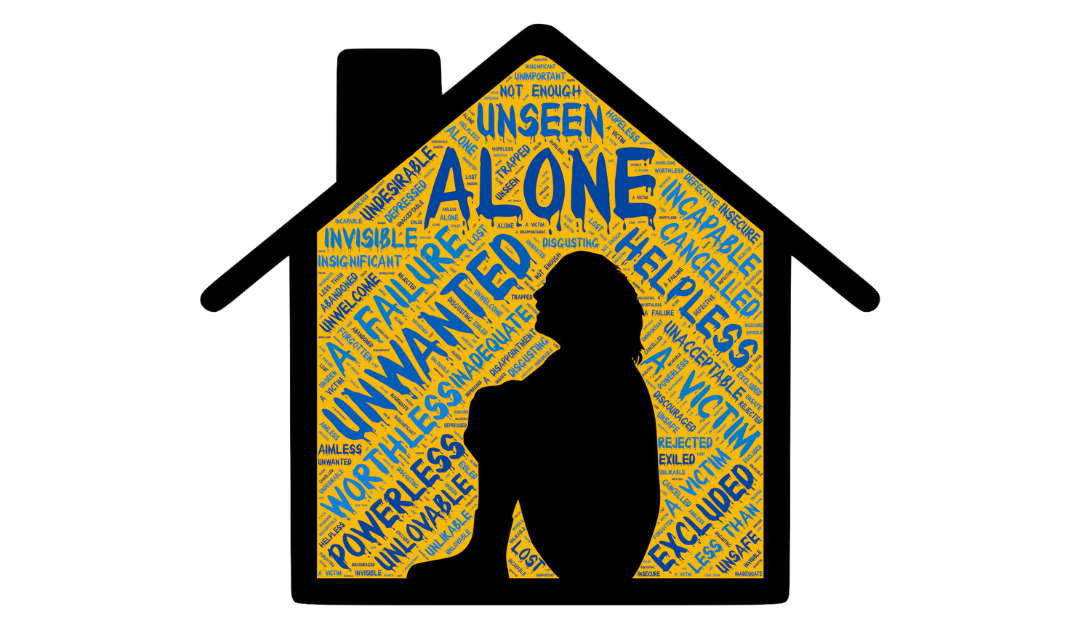
by Calien Trevino | Jun 17, 2024 | Anxiety, General, Trauma- and Stressor-Related Disorders
Hey there, friends! Today, let’s chat about something super important: boundaries. We all have them, whether we realize it or not. Boundaries are like the invisible lines we draw around ourselves to protect our emotions, time, and energy. They’re crucial for building healthy relationships and maintaining our well-being.
First off, what exactly are boundaries? Simply put, they’re guidelines we set for how we want to be treated and what we’re willing to tolerate. Setting boundaries isn’t about being selfish or shutting people out—it’s about respecting ourselves and others.
So, how do you know if you need to set boundaries? Well, if you often feel overwhelmed, drained, or taken advantage of in your relationships, it might be a sign that your boundaries need some reinforcement. Setting boundaries starts with knowing your limits and communicating them clearly. For example, if you need alone time after work to recharge, let your friends or family know that you appreciate their company but need some space.
It’s also important to listen to your instincts. If something doesn’t feel right or if someone consistently disregards your feelings, it’s okay to speak up and assert your boundaries. Remember, you deserve to feel safe and respected in all your relationships.
Boundaries can also be about saying “no” without guilt. It’s okay to decline invitations or requests that don’t align with your values or priorities. Your time and energy are valuable, so use them wisely. But boundaries aren’t just about setting limits. They’re also about honoring other people’s boundaries. Respect goes both ways in a healthy relationship, so listen to others’ needs and be mindful of how your actions affect them.
Lastly, don’t be afraid to adjust your boundaries as needed. Life changes, and so do our needs. Being flexible and open to reassessing your boundaries can help you maintain balance and harmony in your relationships. Remember, setting boundaries isn’t always easy, but it’s essential for your well-being and the health of your relationships. So, take a deep breath, tune into your needs, and start drawing those lines where they matter most. You’ve got this!

by Calien Trevino | Jun 17, 2024 | Trauma- and Stressor-Related Disorders
It’s a tough subject because family ties are supposed to be strong and supportive, but sometimes, that’s just not the case.
We’ve all heard stories or maybe even experienced firsthand how certain family dynamics can be really unhealthy. Whether it’s constant criticism, manipulation, or just never feeling good enough, toxic family relationships can seriously mess with your mental well-being. So, what do you do when it feels like a family member is more of a burden than a blessing? First off, it’s crucial to recognize that you have the right to prioritize your own mental health. It’s not selfish to distance yourself from toxic influences—it’s self-care.
Setting boundaries is key. Maybe it means limiting how much time you spend with certain relatives or being selective about what personal information you share. Sometimes, though, setting boundaries isn’t enough, and you might need to consider cutting ties altogether. Now, that’s a tough decision, no doubt about it. Cutting off family, even if they’re toxic, can bring up a whirlwind of emotions—guilt, sadness, relief, you name it. But remember, your mental health matters more than maintaining a dysfunctional relationship out of obligation.
It’s also important to build a support system of friends or other family members who do uplift and support you. Surround yourself with people who make you feel valued and respected. And hey, it’s okay to seek professional help too. Therapy can be incredibly helpful in navigating these complex emotions and making decisions that are right for you.
Ultimately, cutting ties with toxic family members is about reclaiming your own happiness and peace of mind. It’s not an easy journey, but it’s one that many people find necessary for their own well-being. Remember, you deserve to live a life free from toxicity, even if it means making some tough choices along the way. Stay strong, take care of yourself, and remember that you are not alone in this journey.

by Calien Trevino | Feb 21, 2024 | General, Trauma- and Stressor-Related Disorders
In a world where physical health often takes the spotlight, it’s crucial to shine a light on mental health too.
The importance of seeking help for mental health struggles cannot be overstated, yet many still hesitate due to the fear of societal judgment and stigma. But it’s time to rewrite this narrative. Mental health is just as vital as physical health, if not more so. Our minds deserve the same care and attention as our bodies. Ignoring mental health concerns can lead to serious consequences, affecting every aspect of our lives, from relationships to work performance.
Yet, despite its prevalence, the stigma surrounding mental health still persists. People fear being labeled as “weak” or “broken”  if they admit to struggling with their mental well-being. This fear often leads to silence and isolation, exacerbating the problem further. But here’s the truth: seeking help for mental health is a sign of strength, not weakness. It takes courage to acknowledge when we’re struggling and to reach out for support. And contrary to what the stigma may suggest, there is no shame in prioritizing our mental well-being. In essence, breaking the silence and seeking mental health help is not only important for individual well-being but also for creating a more supportive and understanding society. It empowers individuals to take control of their mental health and live healthier, more fulfilling lives.
if they admit to struggling with their mental well-being. This fear often leads to silence and isolation, exacerbating the problem further. But here’s the truth: seeking help for mental health is a sign of strength, not weakness. It takes courage to acknowledge when we’re struggling and to reach out for support. And contrary to what the stigma may suggest, there is no shame in prioritizing our mental well-being. In essence, breaking the silence and seeking mental health help is not only important for individual well-being but also for creating a more supportive and understanding society. It empowers individuals to take control of their mental health and live healthier, more fulfilling lives.
Breaking the silence and seeking mental health help is crucial for several reasons:
- Prevents Escalation: Addressing mental health concerns early can prevent them from worsening over time. By breaking the silence and seeking help, individuals can access support and interventions to manage their symptoms effectively.
- Reduces Stigma: Opening up about mental health challenges helps break down the stigma surrounding these issues. When more people speak openly about their experiences and seek help, it normalizes the conversation and encourages others to do the same without fear of judgment.
- Improves Well-being: Seeking mental health help enables individuals to prioritize their well-being. Through therapy, counseling, or other forms of support, individuals can learn coping strategies, develop healthier thought patterns, and enhance their overall mental wellness.
- Strengthens Relationships: Communication is key to healthy relationships, and being open about mental health struggles fosters deeper connections with others. Seeking help can involve reaching out to loved ones for support, strengthening bonds and building a network of understanding and care.
- Enhances Functioning: Untreated mental health issues can impact various areas of life, including work, education, and social interactions. By addressing these concerns and seeking appropriate help, individuals can improve their functioning and overall quality of life.
- Promotes Personal Growth: Seeking help for mental health challenges is a courageous step that can lead to personal growth and resilience. Through therapy and self-reflection, individuals can gain insights into themselves, develop coping skills, and navigate life’s challenges more effectively.
By breaking the silence and speaking out about our mental health, we not only empower ourselves but also inspire others to do the same. We pave the way for a society where seeking help for mental health is not only accepted but encouraged. So, let’s challenge the stigma together. Let’s create a culture where conversations about mental health are met with compassion and understanding, rather than judgment and shame. Let’s prioritize our mental well-being and encourage others to do the same.
Remember, you are not alone, and seeking help is a brave and commendable choice. Your mental health matters, and it’s okay to ask for support. Together, with Nova Therapy, we can break the stigma and build a world where everyone feels safe and supported in their journey toward mental wellness.




 if they admit to struggling with their mental well-being. This fear often leads to silence and isolation, exacerbating the problem further. But here’s the truth: seeking help for mental health is a sign of strength, not weakness. It takes courage to acknowledge when we’re struggling and to reach out for support. And contrary to what the stigma may suggest, there is no shame in prioritizing our mental well-being. In essence, breaking the silence and seeking mental health help is not only important for individual well-being but also for creating a more supportive and understanding society. It empowers individuals to take control of their mental health and live healthier, more fulfilling lives.
if they admit to struggling with their mental well-being. This fear often leads to silence and isolation, exacerbating the problem further. But here’s the truth: seeking help for mental health is a sign of strength, not weakness. It takes courage to acknowledge when we’re struggling and to reach out for support. And contrary to what the stigma may suggest, there is no shame in prioritizing our mental well-being. In essence, breaking the silence and seeking mental health help is not only important for individual well-being but also for creating a more supportive and understanding society. It empowers individuals to take control of their mental health and live healthier, more fulfilling lives.









